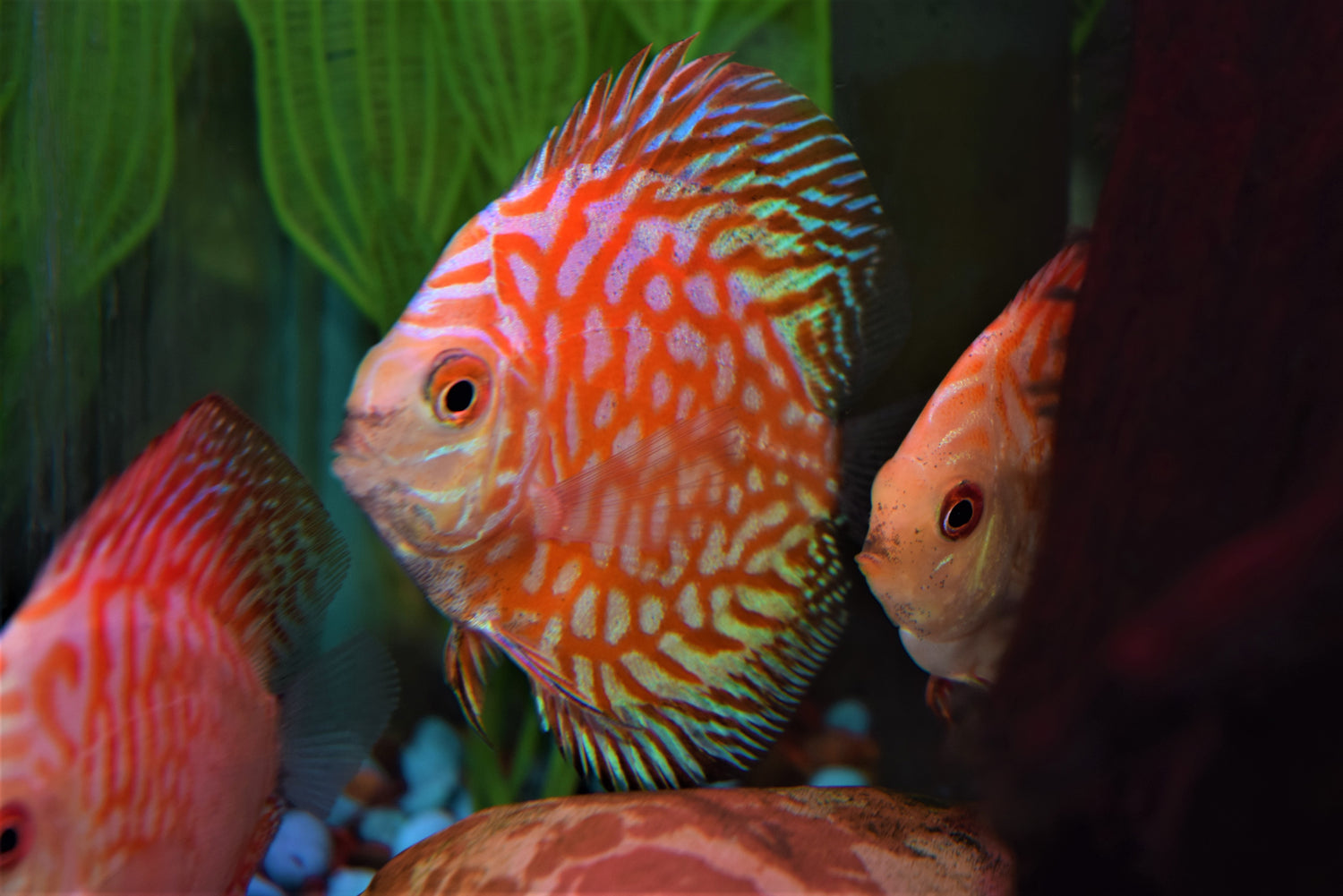

However, most freshwater fish can easily adapt to hard water. The fish may get stressed and be more prone to catching diseases. For instance, if you tried keeping a wild-caught Altum Angelfish or a wild Discus in hard water, you may notice that they might not do well because they’re used to living in very soft water.

came straight from its original location in the world), then you should consider trying to adjust the hardness if it’s drastically different from its origin. Basically, these fish have most likely already adapted to being able to live in waters that have different parameters than their ideal. In most cases, it's unnecessary to match your tank's parameters to the exact parameters of a fish species' ideal environment because the majority of the fish available in stores have been bred in captivity.
Discus water parameters full#
For example, tropical fish from the Amazon River prefer soft and acidic water, because the Amazon River is full of tannins that help it maintain such low levels of pH and hardness. Each fish’s original location has its own set of water parameters. The fish that we keep in our aquariums or that we see at our local fish stores come from all around the world. Match Ideal Parameters for Specific Species

The KH represents the alkalinity of the water sample. The GH level of water refers to the number of dissolved minerals, mainly calcium and magnesium, that are present in the water. The higher the TDS is, the harder the water.įor aquariums, the main parameters we want to measure are the GH and KH: 1. TDS is a term used to define the measurement of the total amount of organic and inorganic matter present in a particular volume of water. How Do You Measure Water Hardness in the Aquarium?Ī very general way to measure the hardness of water is through its TDS (total dissolved solids). However, if your water hardness goes to extreme ranges, algae is more likely to thrive and outcompete your aquatic plants. Aquarium plants can also thrive in a range of general hardness. Most freshwater fauna can easily adapt to hard water. For example, if you would like to either raise or lower your pH level, you will first need to adjust the hardness. Your aquarium's water hardness, or general hardness, is also important because it has a direct relationship to water pH and can act as a buffer. These minerals are beneficial for many fish and invertebrates because they help with their metabolism and help strengthen their bones and exoskeletons. When it comes to your aquarium, general hardness refers to the number of minerals, like calcium and magnesium ions, in the water. Some aquarists will use aquarium driftwood, Catappa leaves, or other natural botanicals that release tannins, creating a Blackwater Biotope. Tap water is typically hard and may need to be softened for certain freshwater aquariums. As the water runs over these types of rocks, they accumulate minerals from them. In nature, water gets its hardness from limestone or dolomite sources. Water hardness refers to the number of dissolved minerals found in water. How do I lower my aquarium water hardness? How do I raise my aquarium water hardness?ĥ. Why should I adjust my aquarium water hardness?Ĥ. In this article, we’ll be answering the following questions:ģ. Water hardness is a parameter that is commonly forgotten about, even though it can play an essential role in the health of the aquatic specimens being kept. But when it comes to water hardness, many new aquarists don't test for it, or even know it exists! Written by: Tammy ( aquascaping hobbyists have heard the importance of testing specific water parameters like Ammonia, Nitrate, and Nitrites.


 0 kommentar(er)
0 kommentar(er)
